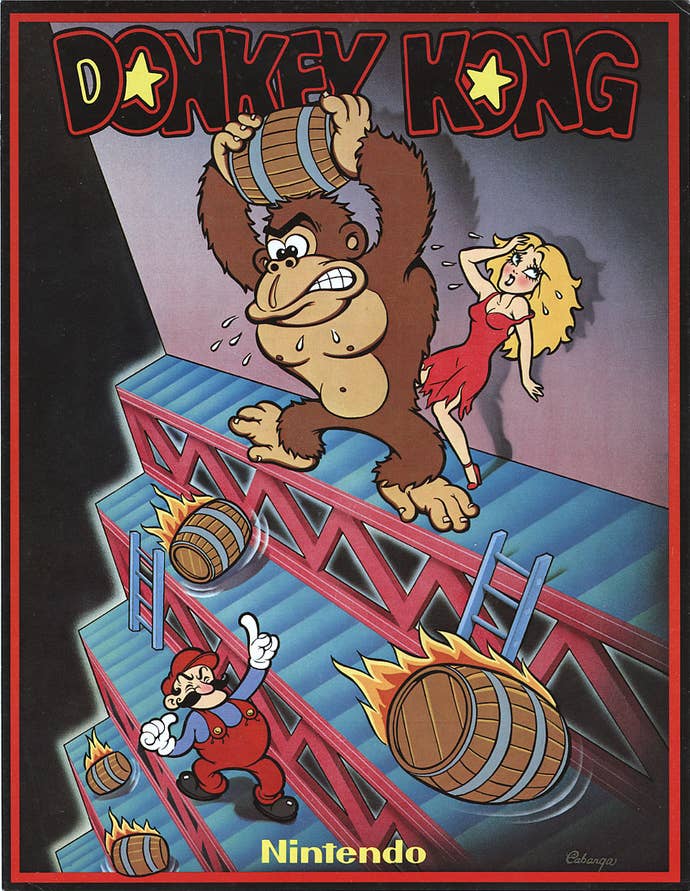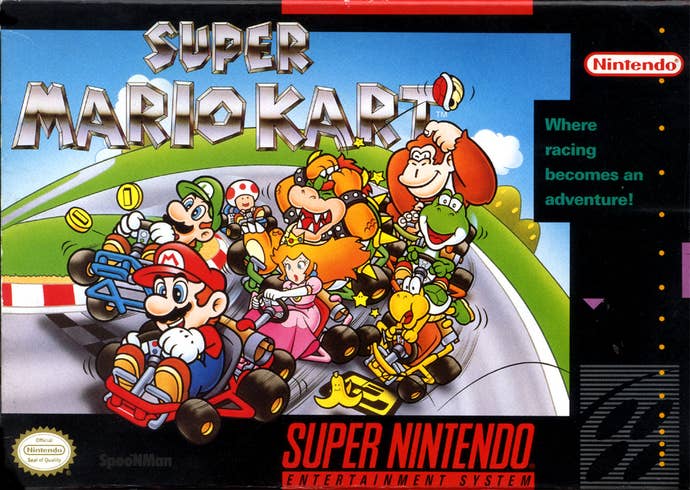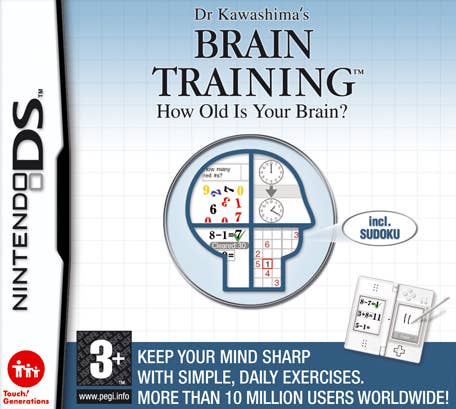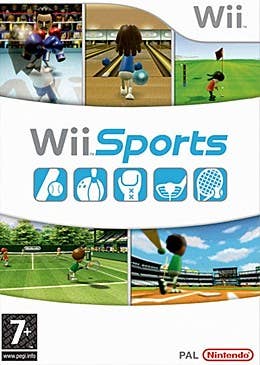Iwata Isn't Nintendo's Problem. It's Miyamoto
Eurogamer's Oli Welsh argues a lack of new game ideas is what's holding Nintendo back.
This article first appeared on USgamer, a partner publication of VG247. Some content, such as this article, has been migrated to VG247 for posterity after USgamer's closure - but it has not been edited or further vetted by the VG247 team.
Satoru Iwata's job is on the line. You can tell that it is, because he's been forced to say that he's hanging on to it.
Not long ago, this situation would have been inconceivable. Nintendo's president and CEO since 2002, Iwata turned the drifting company around with the explosive success of the DS and Wii consoles, innovating in touch and motion control, exploring new markets, and outstripping the sales of his megacorp rivals at Microsoft and Sony.
But now Nintendo is facing a situation even worse than it did in the early 2000s. 3DS is underperforming, Wii U is a flop, the company is predicting its third annual loss in a row and its stock has slumped. Commentators are calling for Iwata's head, pointing to Nintendo's quixotic strategies, tattered third-party relationships and ineffective marketing.
But perhaps -- to think the unthinkable -- there is another famous figurehead at Nintendo who is holding the company back; a man regarded for decades as its most valuable asset. I'm talking about the legendary game designer, the creator of Mario, and general manager of the famed EAD development teams: Shigeru Miyamoto. Lately, he hasn't been doing his job so well.

Much of the rhetoric surrounding Nintendo makes the mistake of treating the Kyoto outfit as a platform company, like Sony and Microsoft. It is, of course, but that's only a by-product of Nintendo's true calling. Nintendo is a games company. It has absolutely no vested interest in the console business beyond selling video games -- primarily its own video games. It is, really, a developer-publisher, an autonomous premium games label, like Blizzard or Rockstar. It happens to make its own consoles as part of its development process -- because, on both a business and a philosophical level, I don't think Nintendo believes you can separate hardware and software. (Which is why it dismisses out of hand the argument that it should develop for other platforms, however compelling.)
So it's helpful to look at Nintendo's situation not from the perspective of a technology company, but as a maker and publisher of video games. And Shigeru Miyamoto is its game-maker in chief. Nintendo's internal workings are opaque at best, but we know that Miyamoto consults across a very wide range of projects, occasionally gets hands-on as a designer and producer, and alongside his longtime collaborator Takashi Tezuka, holds managerial responsibility for all games development. Anecdotally, the impish, youthful-seeming 61-year-old is an exacting boss with a sharp, analytical mind, firmly held opinions and a quick temper. And he is Nintendo's chief PR asset -- the most widely recognized and adored game creator ever, an icon who embodies the company's values and its peerless record as the maker of the best-loved, best-selling video games on the planet.
Yet right now, creatively, Nintendo the game developer is in a rut.
This is nuts, you might be thinking. Didn't Eurogamer just give Super Mario 3D World 10/10 and anoint it their game of 2013? What about the incredible run of quality titles on 3DS over the last 12 months? Nintendo still makes great games!

Of course it does. In fact, Nintendo's commitment to quality in its games is so impressive, across so prolific an output, that it all but obscures its creative malaise. Artwork is never less than polished and charming. Design is refined and inventive. Engineering is excellent, too -- something the company doesn't often get credit for, since its priorities are different from those at the bleeding edge of games technology, but over on Digital Foundry's YouTube there's an unwavering green line next to the number 60 which argues that 3D World was one of the best-engineered games of last year. Review scores are buoyant (and I freely admit that we critics, trained so effectively to love Nintendo and judge it by its own high standards -- many of us since childhood -- are part of this problem).
But consider this: every one of the brilliant games Nintendo released in 2013, it had made before in some form. 3D World might be a dazzling procession of little gameplay ideas, but big ideas have been noticeably absent from the company's output for years now -- completely so on both 3DS and Wii U. Its slate is a catalog of sequels and rehashes. Nintendo's last major new IP launch was Wii Sports, back in 2006.

Wii Sports could not be a more instructive example. Though not the most sophisticated game in the company's history, it was one of those -- Nintendo has at least half a dozen like it to its name, as both developer and publisher, including Super Mario Bros., Tetris, Pokémon and Brain Training -- that made sense of its host console and sold it by the tens of millions. It wasn't just a killer app for Wii -- it was Wii. Subsequent megahits like Mario Kart Wii owed all their success to it. Going right back to 1981 and the Donkey Kong arcade machine, Nintendo has repeatedly blown its way out of trouble, even created new markets for itself, with games like this. Not with acquisitions, not with marketing, not with clever business strategy or new technology -- with killer games.
So this is how we end up at Miyamoto's door. As the leading light of Nintendo's games development, it is his responsibility to find games like this for 3DS and -- more pressingly -- Wii U. New games. If he can't make them himself -- and at 61, having personally crafted several of these era-defining classics, from Donkey Kong all the way to Wii Sports, he's allowed to be spent -- then he needs to incubate younger talent that can, and encourage them to work on the bold new ideas that Nintendo, for all its traditionalism, has always embraced.
Miyamoto has said in interviews that the latter is his primary focus these days. He has had one major success in this area -- the establishment of EAD's Tokyo offshoot, a younger team of almost obscene talent. And what have they been doing? Making Super Mario games. Elaborating the master's own legacy.

Aware that the casual audience it attracted with Wii and DS might not stick around, and of a need to shore up its traditional fanbase, especially in Japan, Nintendo has leaned harder and harder on its famous franchises and storied history in recent years. Now the developer's output has become so self-referential it's almost post-modern. Nintendo Land, the game that should have been the Wii U's Wii Sports, was a virtual theme park of past glories, a nostalgic merry-go-round. A Link Between Worlds, the most structurally inventive Zelda game in years, might also have been the freshest if it wasn't framed as a sequel to a 22-year-old classic. The last Nintendo Direct of 2013 was a bewildering parade of callbacks, mash-ups and crossovers: Nintendo characters, some of them quite obscure, invading each others' games or crossbreeding with Dynasty Warriors and Sonic the Hedgehog; Luigi's face pasted over Mario's in a remake of a venerable puzzler; a new game, NES Remix, made out of bits of very old ones. Nintendo's not looking forward, it's looking in the mirror, and seeing only the image of its younger self.
Nintendo's own history proves that it needs new ideas to keep turning out the eight-figure hit games that power its whole enterprise. Last year, I asked Eiji Aonuma, producer of the Legend of Zelda series and one of Miyamoto's most trusted lieutenants, if he thought the company needed new game series. He replied that it was difficult to balance incubating new IP and young talent with the need to maintain the many Nintendo series fans love. I'm sympathetic, but I think it's reached a point where the first task is more urgent than the second.
It seems unlikely that Miyamoto himself isn't aware of this situation. His own record as an innovator suggests otherwise. Perhaps, in greenlighting so many sequels, offshoots and retrospective curios, he is just trying to keep fans tickled and sales ticking over until Nintendo's next magic bullet is in the chamber. It's said that he is working on a new franchise for Wii U, as is the Tokyo A-team -- perhaps one and the same project. News of what they are up to cannot come soon enough, and I hope it proves me wrong.
But even if it does -- even if, within Nintendo's walls, Miyamoto is fighting the company's more conservative instincts rather than preserving them -- perhaps it is time to consider whether his richly deserved legend hasn't become a gilded millstone for the game creators working under him. He's a star that cannot be outshone, and his original creations have become needs to be serviced by those who follow him, rather than inspirations for them to find their own voices. I wouldn't be all that surprised if the great man agreed with me, but it never seemed to him to be the right moment; his successors never seemed to be ready. Perhaps they won't be until he steps aside. Perhaps he, and they, and we, just need to let go.
